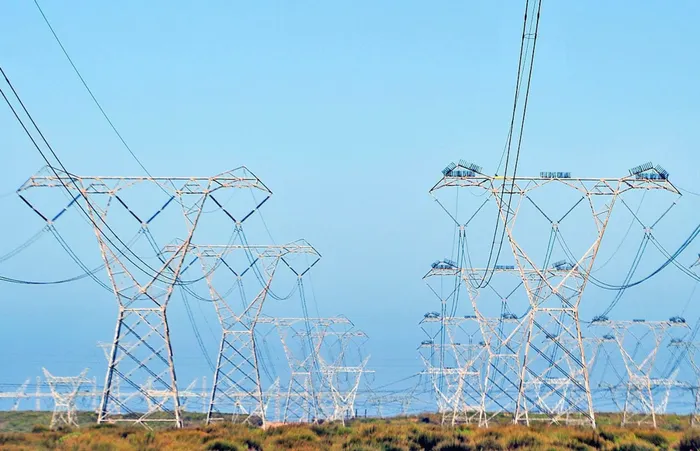Nothing wrong with government getting off grid

Picture Henk Kruger/Cape Argus - In February 900 megawatts is to be taken off the grid when one of Koeberg nuclear power station’s units undergoes maintenance.
By Prof Bonke Dumisa
There is an English saying “You are doomed if you do, and doomed if you don’t.”
The national government and some other structures of government usually find themselves in this Catch 22 predicament where they are not allowed the space to experiment with ideas which can later be used to improve the lives of everybody.
The national government has decided to install solar and retrofit most if not all government departments, as a way of procuring at least 230MW off the Eskom grid.
The government is expected to lead by example in demonstrating that it is possible to have electricity without necessarily relying entirely on the Eskom grid.
The DA-led Western Cape provincial government, especially the Cape Town Metro, has been publicly announcing bold steps in this direction.
We must all accept Eskom is effectively a lost cause. The mere fact that there is plenty of evidence that many (not the majority) of Eskom workers and many (not the majority) of Eskom service providers are involved in a lot of collusive corruption means that many current Eskom customers now have to experiment with operating off the Eskom grid.
As we speak, Eskom trade unions are demanding a 15% salary increase with many other additional fringe benefit increases despite the fact that Eskom is bankrupt with debts exceeding R480 billion.
How far can this culture of entitlement go on? This is like a case of spoilt brat children demanding new Apple play-stations and Apple iPhones from unemployed parents who got retrenched from work at the start of Covid-19 pandemic lockdowns.
There is a complaint, from some quarters of society, that “while the government is sourcing its own solar energy, many businesses and households would continue to be affected by loadshedding”.
The complaint and concern that many sensible people are raising is, “Is it fair for the government to source its own solar energy and leave everyone else stuck in load shedding given the fact that many jobs have been lost already? Can the government help other sectors of the community and economy to get off the grid quicker?”
It is true that Eskom’s load shedding is destroying the South African economy. Even the new Minister of Energy, Kgosientsho “Sputla” Ramokgopa, has already conceded that the problems of Eskom load shedding will still be with us for some time beyond 2023.
The rumoured turf wars among the three ministers, Pravin Gordhan, Gwede Mantashe, and Ramokgopa are a serious cause for concern.
Already three months after being announced as a minister within the Presidency, responsible for electricity, Ramokgopa still does not officially know what his powers are in executing his duties.
The rumours are that Mantashe is simply not willing to give an inch of his current powers.
If Ramokgopa cannot procure anything, because all procurement powers reside in Mantashe’s office, that simply means Ramokgopa is simply a paper minister. I initially wanted to say “a paper tiger” then I quickly realised that some may deliberately and mischievously misunderstand me.
It is at times like these that President Cyril Matamela Ramaphosa’s main weakness of indecisiveness becomes a serious focal point.
In the field of research and development, it is normal practice that researchers create or identify a representative sample area for their pilot experiment; they test the effectiveness or otherwise of their proposed solution.
If the results of their pilot project are regarded as successful they proceed to enlarge the pilot area before any national launch. It is during this time that the researchers will fine-tune or even add or remove some earlier or initial specifications.
The government is actually doing the right thing by experimenting with its own “captive audience”, the government departments, in order to see how effective this solar energy project is.
We must remember that the National Treasury, through Minister Enoch Godongwana’s Budget speech in February, made announcements about tax-deductible incentives for businesses that are going to install solar devices to reduce their reliance on the Eskom grid, and also to reduce the negative effects of Eskom’s load shedding.
The National Treasury also announced some limited concessions for ordinary taxpayers who install solar.
My worry though is that thieves have already started stealing solar panels from houses. Given the extent of corruption and lawlessness in South Africa, where criminal syndicates thrive on stealing government property with impunity, where thieves are always stealing computers and iPads meant for improving computer literacy in our schools, what will stop the same criminal syndicates from stealing the same solar panels from government departments, with insider collusion?
*Prof Bonke Dumisa is an independent economic analyst